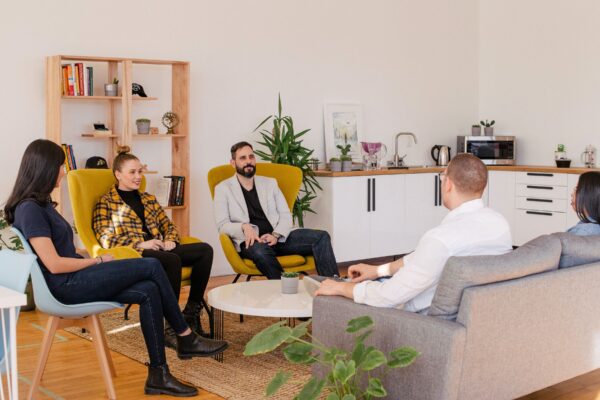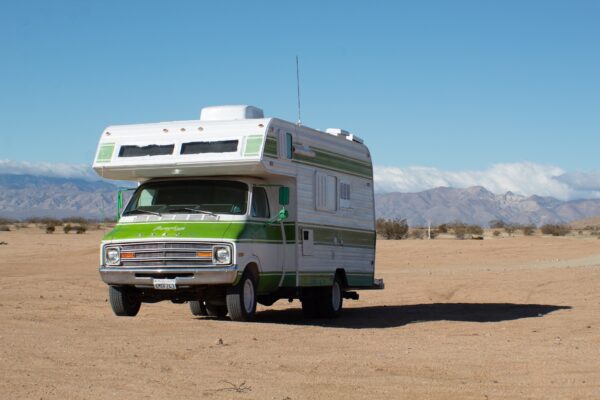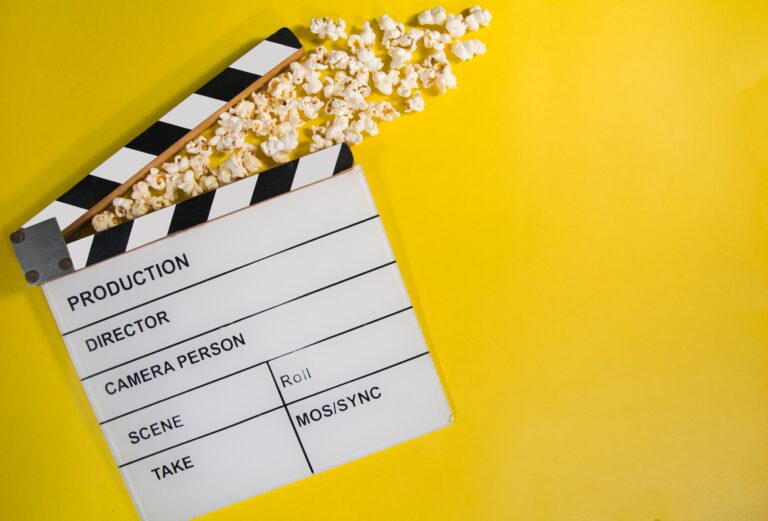Prefer audio over reading? Check out the full podcast episode here.
John Strelecky:
Hello everyone and welcome to The John Strelecky Audio Experience. Welcome back everybody in this part two of our interview with Nathan Hurd from the Rich Life Lab. Today we’re talking about how to avoid mad how diseases implementing your non-negotiables and where profit and purpose intersect in life. Enjoy!
Nathan Hurd:
What is the PFE conceptually and where did it come from? How should our audience or people listening to this think about PFE?
John Strelecky:
Yeah, so this is not something I was ever exposed to throughout my entire education, which is kind of weird, when you think about it because you learn amazing stuff. You learn about, reading, writing, history, all the rest of that. But at no point in my life did anybody ever ask me, “what is your purpose?” So in the story of The Cafe on the Edge of the World,the guy wanders into this very mystical, unusual cafe. And when he turns over the menu, there’s three questions.
Why are you here?
Do you fear death?
And are you fulfilled?
And that question, “Why are you here?” is probably one of the most important questions to allow ourselves to ask because when you think about, what is the type of museum that I want to create for myself, what are the types of moments that I would love to relive again and again, not only in my museum if that’s the way it actually works, but in my memories, in my thoughts and my emotional reaction to the story that I’ve created for myself. And that comes down to, well, why are you here?
What is your purpose on the planet?
For somebody that might be, I wanna be the most amazing parents ever. I wanna love my kids. I want them to know every single day that they’re safe, that they’re loved. I wanna build that confidence in them. I wanna create that springboard for them to have an amazing life.
Somebody else may say, I wanna be the designer of the most spectacular race cars in the world. I want to create new designs. I wanna see those cars race around that track. I wanna see championship trophies. Someone else may say, I want to be an adventure who visits 200 countries before I die. You know, there’s an infinite array of opportunities, but it comes down to that question, why are you here and what is your purpose?
And in the book I call it, what is your purpose for existing your PFE? And, when you’ve identified that, it’s like knowing where the X is on the treasure map. It guides you, it’s your North Star. It’s what enables you to move in the direction that you want to go.
Now, I will say that it comes with a price because once you know what it is, you can’t go through your everyday life and just live the way you were living before because it’s very uncomfortable. When you have tasted your purpose and then you aren’t living your purpose, it’s painful. And when you see other people living a related purpose or living their purpose and you know, inside your heart that you could be living your purpose too, it’s painful.
This does not come without a price, this awareness of why am I here?
Nathan Hurd:
Does purpose, from your perspective, change over time? How often should somebody reevaluate? The perspective I had on my life 20 years ago, and what I thought I wanted then, has since changed.
You know, I know that, my parents or people that have had a career and are at a different stage, their sense of purpose is very likely different. How do you think about purpose changing over time and reevaluating purpose?
John Strelecky:
My guess is because many, many years ago, over a decade ago, people would read The Big Five for Life book or The Cafe on the Edge of the World, and they would say, can you help me? Can you help me figure it out?
Because The Big Five for Life, are the five things that you most want to do, see, or experience in your lifetime before you die? And they are sort of, if you think of your purpose as the umbrella, these are the things that are underneath that umbrella, or a better analogy is, your purpose is a river.
So I’m on the make a difference river. And what are the ports of call that you wanna stop at along the way? Oh, I wanna build homes for the homeless. Or, I want to be an amazing accountant. Or, I wanna be a spectacular parent. So, I firmly believe that your purpose is something that is deep within you, and it’s probably been there since you were a kid.
It’s just kind of the way that you’re wired or the choices that you have made about the kind of person that you want to be. The ways in which that manifests a hundred percent, I believe that changes over time as you increase what you are capable of, as you increase the resources that you have at your disposal.
The type of way in which you want to fulfill your purpose absolutely. Can change over time. No doubt about it.
Nathan Hurd:
So the purpose, that underlying purpose tends to stay consistent. It’s within you, but the way it actually manifests, depending on the circumstances of your life and the priorities, the surroundings, the people, can change. Is that what I’m hearing?
John Strelecky:
Yeah. As, as a really basic, basic example. My purpose at this point is to create museum day moments for myself and for others. And I have tweaked that a little bit cuz when I first identified it and sort of mapped it out, it was to create happy moments for myself and for others.
What I realized, Nate, was I definitely like creating those moments. That’s a big part of what I try and create, but it’s not always about something that’s happy. I have a friend whose father just passed away recently.
Being there for him in that moment is not about creating a happy moment. It’s about being there as a friend. It’s about being a foundational rock so that if he’s struggling, that I can be there as the strong entity in that moment. Right? So I realized it wasn’t just about happy moments, and so the museum day moment or moments that I would be proud to walk for the rest of my life and any sort of emotional spectrum that I was there for somebody else, right.

My father has passed away, but if you asked my mom what was John like as a little kid, she’d say like, he was the kid who looked out for other kids. If there was a kid that was hurt, that was injured, or if there was somebody being bullied, he would be the one trying to help that kid.
I didn’t have the confidence to stand up to the bully, but I’d be the one comforting the kid who had been bullied. I think that probably if you were to look over your life, and, i’d love to hear your take on this, that there are parts of who you are now that have blossomed because you have the self-awareness that was there when you were five. Does that ring true?
Nathan Hurd:
It does. I remember when I was young, we used to have these really big trees in the neighborhood where I lived. And I really liked climbing trees at a certain age when I was a child. I would climb to the branch so high where like the tree was swaying, and of course my parents, when they would see me do this, would be utterly fearful. But the other kids in the neighborhood, were inspired. I remember kids that were scared to climb trees or that were scared to climb higher would see this and look at this as an inspiration. The same thing was true for you know, riding bikes over jumps and, running fast through the yard or leaping fences, all the things we did when I was young.
A lot of that was tied back to my desire to inspire other people through conquering my own fears. And, I can tell you, that’s taken many different shapes over the years, but I think you’re completely right that I could imagine a purpose like that lasting forever really.
Because even when, you know your purpose, it’s interesting because some of the research I’ve read about longevity, and I’d love to hear your thoughts on this. But people that are living to kind of the oldest a human can live or their communities have a high degrees of centenarians populations. Oftentimes one of the main ingredients there is a sense of purpose. The community, their families, nurture a sense of purpose and they tend to have one.
John Strelecky:
Yeah, that very much resonates with me. I think that makes perfect sense and this makes even more sense when we allow ourselves to taste what it feels like to be living our purpose.
Like I said, it’s, it can be painful on the other side because when you’re not living it, then it feels outta sorts, it feels uncomfortable. But I’ve definitely gone through phases in my life where I was like, Ugh, damn it Monday, there was just nothing exciting about that at all. I distinctly remember working at jobs where I would look at the clock on a Monday morning, and I would imagine that I had the ability to fast forward time to Friday at 5:00 PM which when you think about that, that is insane!
I was willing to fast forward through 5/7ths of my life. Every single week because I hated the job that I was at. I hated the life that I was living. So if that’s the way you’re waking up on a Monday morning and you add in the fact that you’re getting older and there’s more physical creeks and pains, and your eyesight’s going, I can see where it’s pretty easy to, to get less and less excited about waking up the next day.
To the contrary, if you’re doing something that you actually find great satisfaction in, and that makes you feel fulfilled inside and you have excitement about the next day, I can see why you’d wanna stick around. And so, I definitely think that our psychology is a reflection of our internal dialogue, or our internal belief systems.
Nathan Hurd:
Absolutely. For everyone listening to this, let’s say that, You’re at a point in life where you’re adrift from your purpose. You’re not feeling it at this moment. Maybe you were at one time, and maybe you’re not now. Maybe things have changed. Maybe you’re at a different stage.
Maybe you’ve become a parent, maybe you’ve become a grandparent. Maybe you’ve just retired. Wherever you might be along that trajectory, you’re not totally connected to your purpose. How do you recommend people reconnect? Is it going back to those three questions no matter what age and stage? What are your suggestions there?
John Strelecky:
Yeah, there’s a couple of different things. One, I mean, there’s lots of different avenues to get to the same destination. People will say, well, what did you do, John? Well, I, I left everything behind, quit my job and backpack around the world for a year. I came back with a total different perspective about life, my role in life, what my next set of years was gonna look like for me.

So if that calls to you. Great! That might be an option that you would consider. Not everybody has that sort of bandwidth. That’s not everybody’s path and I realized that. So let me give you some small steps and some medium steps. The medium step would be work with someone who’s an expert and can help you figure this out. I don’t have a ton of resources available for people in the States for that. There is an online experience that people can go through where over the course of 13 or 14 exercises, you will get clear and clear about what are your Big Five for Life and start to narrow in on this life that you wanna live.
For folks that are listening who live in Europe, there’s a lot more in-person work that is available there because I have a couple of companies where they do this work. That said, there are other great coaches out there who can help you get this sense of awareness.
As an athlete myself, I like to work with a coach because it’s very hard to see the things that I’m doing wrong while I’m in the midst of trying to perfect them. It’s like trying to look in the mirror while you’re giving yourself a haircut. You know, you can’t quite do it. It’s, just impossible. So I like the fact that a good coach can accelerate my progress faster, but that’s not everybody and that’s not where everyones at.
So here’s a very simple set of techniques that anybody can use as a starting point. #1, give yourself a block of time every single day and go out in nature with no distractions. No cell phone, no podcasts. And I love podcasts, so I’m not saying don’t listen to podcasts in general cuz I love them. they’re great to me when you want to be absorbing content, not when you want to be self-reflecting. So if it’s time for self-reflection, turn off all the distractions. Go walk in nature.I find nature to be an incredible source of inspiration.
While in nature, just ask yourself that question. Why am I here? And it may not come to you in the first five minutes. It may not come to you in the first day. It may not come to you in the first week, but you’re going to get flashes, or little, little instinctual moments.
Write those down. the experience that I have people go through over the course of two days when they work with a coach. Is all about tapping into this intuition. You may get the color green and you don’t know what the color green means, but you may get the color green five times. So start writing that down. You may get the flash of a movie that you’d seen years ago that you can’t quite remember what it was about, but you remember you liked it. Okay, watch that.
Your intuition cannot talk to you in the same way that you and I are talking, Nate, it’s not gonna be able to say, Hey buddy, you know what your purpose is actually to……. but rather it is gonna give you these clues.
If you start recognizing the clues and writing them down, you’re gonna start to find patterns. And in those patterns, you’re gonna start to find your Big Five for Life. And in your Big Five for Life, you can start to ask the question, why are these my Big Five for Life? And in that answer, why is actually your purpose?
So I’ve just consolidated a two day immense course done into 30 seconds, but that is the essence of it. Um, so that’s a good technique. Another good technique is looking at life and saying, who’s living my dream life and why is that my dream life? Do you like the fact that they have freedom to do what they want and therefore freedom is something that you crave.
Do you like the fact that they get to spend more time with their kids? Are they the coach of the little league team and you wish you were the coach of a little league team? Are they doing a lot of interviews, and you would like to be doing interviews. Well, why? Maybe your life purpose is to share a piece of wisdom and you feel that you could be a guru for that piece of wisdom.
So by looking at the world and saying, who’s living my dream life and why is that my dream life can be incredibly guiding in terms of what your purpose is. A great follow up question to that is, well, what did they do to get there? If you look at three people who are living your dream life and you get to know their backstory, either through interviews they’ve done, books that they’ve written, YouTube interviews they’ve done, podcasts they’ve given, you can start to identify a path that can be your path.
Now, it may not be exactly your path, but this is a perfect example of what I call, it’s avoiding mad how disease. Because most of the times we say, oh, well how can I become like that? How can I live that life? A way better question is who’s already living that life and what are they doing to get there? What did they do to get there? Because if I can imitate what they did to get there, at least at the start, that gives me momentum, and that momentum is what gives me the confidence to keep going. So this is a way better technique then, well, how do I do that? No. Who’s already doing it and what has been their path? Those are two great things, and then another one is, like I said, identifying your big five for life. If you think you’ve got even a, an inkling of what that might be for you, then start walking that path.
So if you said, you know what, I really want to sail around the world, Nate, I think I want to spend six months sailing in the Caribbean, And then I wanna take that boat and I wanna sailor around the world. Okay. That’s a very big thing that is gonna freak out your mind like nobody’s business because your brain has one goal, which is to keep you alive. And so your brain is gonna look at what you did yesterday and say, wait a minute, we didn’t do any sailing yesterday. We are definitely not in the Caribbean. And uh, we definitely were not sailing around the world by ourselves yesterday. So that’s a really horrible fricking idea. So let’s not do that. That’s your brain’s first reaction to everything that has changed related because it wants to keep you alive. And whatever you did yesterday obviously kept you alive. Let’s just do that again today.
The trick to this is to ease your brain into this new reality, and you do that by sampling.
If someone has a glimpse about this being one of their big five for life, here’s the trick that I recommend. Get a magazine or a book about sailing. And every night for the first week, just for five to 10 minutes at the end of the night, read that book or flip through that magazine. And here’s what’s gonna happen on an unconscious level. Your brain is gonna look at that picture of the person on the sailboat, and it’s gonna say, huh. Looks like that’s a guy, you’re a guy. Maybe this isn’t as dangerous as we thought it could be, because they look like they’re smiling on that sailboat and uh, we’d like to be smiling. Your brain will look at that picture and be like, huh, that guy’s wearing shorts and a t-shirt. We have worn as shorts and a t-shirt and we have not died because of that. And I know this sounds silly and it probably sounds stupid, but this is truly what happens on an unconscious level as your brain is starting to get comfortable.
And so the more you do this on a small scale, the more your brain starts to embrace this. What happens is you go from being a pull mentality where I have to try and pull my brain to convince it that I wanna do this. Your brain is gonna start pushing you in this direction because the more you flip through it, the more you’re Internal system, the chemicals of happiness are flowing through your body. As you’re flipping through this magazine, your brain will start to connect with that and it’ll start to push you to, “why don’t we go to that sailboat convention that’s going on in the convention center? That’d be kind of cool, right?”
Now your intuition is gonna kick in cuz you’re gonna see the notification about the sailboat convention, where before you wouldn’t have even noticed it, cuz it’s on your radar. These small little steps start to gain momentum. And the next thing you know, You’re on a trajectory that’s gonna get you on that sailboat for six months down in the Caribbean.

Nathan Hurd:
Yeah. I love the way you’re describing this. Oftentimes it’s fear. It’s the fear of, like you said, and totally. These little micro movements forward are just reducing the fear. They’re like little micro exposures and it’s just reducing the fear. The other thing that you made me think of is, you know, sometimes these goals, or these Big Five for Life as you call them, I love that are, like everyday things. So for example, one of the things that I’ve thought a lot about since I’ve become a father is I want my kids someday to look back and say, my dad was present with me every day. But the thing is that I could easily, and I have imagined all the reasons why there are conflicts and there’s, you know, it’s hard to make that happen some days and not other days. And, and really when it comes down to it, if I just focus on how am I gonna make sure that at least.
A few minutes today are spent with pure focus, pure presence. Then I’m not thinking about what could or couldn’t get in the way and it makes it a lot easier.
John Strelecky:
I call those your non-negotiables.
When my daughter was two I realized, holy cow, this kid is growing up so flipping fast, like it’s amazing only two years, and she’s already this big, right? And so I decided that I wanted to have this type of bond that you’re talking about. I wanted her to have great memories of our time together and we had done a lot of traveling. I think she had already been in a few countries at that point. But I wanted to create something special and so I started a tradition called Adventure Days. And so, I would pack the backpack, I would pack the diapers, I would pack the snacks and I’d pack the stroller and off we would go on an adventure day, just daddy and daughter.
This would give my wife a break and would give my daughter and I some quality time together. And we literally would go to every park, every zoo, everything that was in a one and a half hour drive of our house and just spend time together. And you know, at the start, when they’re two, literally that can consist of finding a playground that they’ve never been at before and you literally spend three hours in the playground playing ice cream store with the wood chips, right?
So it’s not like you’re doing something that in the big scale of things, the rest of the world will not be like, wow, look at that contribution to society right there. But it was just time. And so we did this, and we did this, and we did this, and Nate, there were a thousand reasons at that point in my career where another interview could have led to this and oh, this trajectory if you just spend a whole day, I mean, think about, it’s a whole day of the week, right? Yeah if you spend that whole day working on furthering the career and furthering the awareness of your books, it could mean this, right?
There are all kinds of reasons why that made more sense. And of course then culturally, well, John, if you do that, then of course it’ll give you even more money. And if you have more money, think of the things that you can give to her. Well, maybe you guys can do this, or she can go to Harvard. If she’s smart enough, she can go do this.
It’s easy to get on that track, but at the end of the day, to your point, what I wanted to do was to have a great relationship with my kid. That tradition of Adventure Days continues on to this day. She’s 14 now. We still do adventure days, Nate, I would not trade one of those adventure days for any speaking event around the world.
I was asked to speak at an event. I was the next speaker after Barack Obama in front of 15,000 people. Crazy life experience Right? I would give that up in a second for any one of those adventure days. No doubt about it. And what’s amazing is that when I ask my daughter, can she remember some of the things that she did that we did on these adventures days when she was 3, 4, 5, even six, she doesn’t remember anymore.
She’s 14 now. And that was so interesting to me because you don’t do it because you’re creating the memory. You just do it because in that moment it was a great moment for you and your kid. Mm-hmm. And yeah. Does it create those little micro moments that further the relationship? A hundred percent.
She and I talk now. We have this amazing, beautiful conversations. We go on a lot of hikes now because of Covid. So we do a lot of outdoor stuff for our adventure days. We talk about everything. We talk about friends, we talk about growing up, we talk about puberty, we talk about all this stuff.
That doesn’t happen if I don’t have this basis of a long-term friendship, connection, relationship, being there for her and demonstrating that, was important to me and, she’s heard me tell people on the phone, when they would say well, the only day we can do it is Thursday. I would day sorry but I can’t do it.
But, this is a really important interview. I can’t do it. It’s Thursday. That’s Adventure Day. And I think that demonstrated to her I don’t do it for that reason, but that’s, that demonstrates her that, you know what, wow, this, this is important. These times are important. And, uh, I can’t stress that enough, man.
If you wanna be, if you have the calling to be the kind of parent that you know in your heart, you want to be, do it because the universe will conspire to assist that everything else works out okay. It really does.
Nathan Hurd:
You’re giving me pins and needles. You know, it’s amazing. what you’re describing is that, she knew from a very early age, it was just instinctual that she was the priority and that you were foregoing other things, as you said, and that kind of trust, sounds like in your case, has turned into a really beautiful, strong connection and It’s definitely something that I aspire towards. So that’s really helpful. Thank you.
John Strelecky:
As a matter of fact, with that comment you made me think of something. I think we talked before about fear and how fear can keep you from being the type of person that you want to be living the life that you wanna live.
I firmly believe that there is something bigger at play. I call it the Cosmic Algorithm of the Universe, that there is a game going on underneath what we can see with our basic senses. There is far more to life than than this.
I had a major epiphany in regards to that, and I think this is something that could be really beneficial to people. I wanna share this, this concept. That the universe is not just listening, but the universe is watching, and you can substitute the word God if that fits your belief system. You can substitute the word consciousness if that fits your system, but the universe is watching, not just listening.
And so if you believe that we are in the presence of a divine and compassionate being, again, universe or God, whatever, and that we have free choice. That we can say to ourselves in our mind, I wish I was spending more time with my kids. I wish I was being more of an adventurer. I wish I was this, right. But while we’re saying in our mind, the reality that we’re demonstrating is that we’re sitting at that desk for 14 hours a day.
This benevolent presence is looking down at us and it’s saying, wow. I don’t know what it is that John finds so appealing about what he’s doing at that desk, in that little room and facing that screen, but. I mean, look, he’s missing out on the chance to go on his kayak, and I know he loves that.
He, he’s missing out on the chance to play with his daughter, and I, I know he loves that, and he’s missing out on this, so that he can sit in front of this glowing box of lights in this small room. He must love that more than anything else in the world. I, as a benevolent, compassionate presence, want to give him even more of that.
Yeah, I mean, this story has played out so many times in my life, and when I look back and connect the dots, I realize that I was thinking that I wanted something different in my life, but I was not demonstrating to the universe that I wanted something different in my life. In the minute I started demonstrating it, it was like all the forces, these walls, these barriers that I saw in front of me.
Now instead of being barriers its propelling winds that guided me in the direction that I knew in my heart of hearts that I wanted to go, all because I was willing to take a step, that first step in the unknown, into that direction. That that single concept has changed my life a thousand times over.
Nathan Hurd:
Wow. I mean, listening to your story, you’re a living example of how that’s played out in someone’s life. And it’s amazing to see how that can unfold. And, and I tend to really agree with you that there’s something there we don’t understand, which is why when we look back, it makes sense and we look forward it doesn’t. A lot of times when people think about purpose, what, they might have in mind gets weathered down or worn down by the practicalities of life, right? So I have kids, I have a family, I have responsibilities, I have this, I have that. I have bills to pay.
How do you think about the intersection between profit and sort of, you know, responsibilities, uh, of that nature and purpose?
John Strelecky:
So this ties into something that we talked about before, which is the who versus how. And so the way to get beyond those fears. And the massive unknown is to find examples of someone who’s already doing, seeing and experiencing it.
In terms of my first travels, I had never done something like that on that scale before I came across a little website, which I have no idea is still out there, because this is decades ago it was called chickenbus.com (Turns out it doesn’t exist anymore) and I looked at this website, this was even before blogs, so it was just a website with some pictures and the person had written a bit of their story.
And it described what they were doing as they were out there backpacking around the world and with pictures. And, and I thought, well, what the heck? If this person can do this, I can do this. And so one of the great obstacles is the unknown. One of the great enablers is finding examples of people who are doing it and whether that is I want to enable my kids to do remote learning while we go explore the most spectacular national parks in the United States in an RV.

I can tell you right now, there are thousands of families doing that. And so any obstacle, any barrier, any fear you have in a one hour conversation can probably be turned around in the opposite direction by having a conversation with one of those people. So find those people and that’ll enable you to do it.
The beautiful intersection of purpose and profitability is that I think the real currency of life is minutes. It’s minutes and memories and Museum Day Moments. The three M’s. Museum memories, minutes, that is the real currency because at the end of the day, there’s a declining value in how much money you have once you have the basics covered as far as the life that you wanna live.
It’s a law of diminishing returns. One more zero isn’t gonna really change your life if it doesn’t mean that you’re getting more minutes. And if there’s anything that the pandemic has taught us is it has reminded us of the fragility of life, that it is not guaranteed. You know, statistically you get 28,900 days, but in order to get that statistical average, it means someone’s gonna get less.
And unfortunately, a lot of times, people don’t talk about that. One in six men don’t even make it to 65. That’s crazy. It’s crazy that this is not part of the daily conversation.
If you’re not lucky enough to be exposed to alternatives we stay in the system of I study hard in school, I get my job, or I go through university, I get a job, I work my way through the system, and then the payoff is gonna come when I’m 65 and I can finally retire. Yeah. Well, here’s the big news flash. 20% of men never get there. So if, if you’re buying into that as the ultimate payoff, you better, hope you’re one of the 80%.
Cuz if you’re one of the, 20% you just got screwed in a way that is horrible. So minutes to me are the currency, the the ones that matter. So imagine if you could take a look at your life and say, okay, well this job that I do, What would it look like if I actually was doing a job that was in alignment with my purpose?
And maybe that’s a small tweak, Nate. Maybe that’s, you love the outdoors and you love kayaking, you love backpacking, and you’re an accountant. Well, can you go be an accountant for R E I or for Columbia clothing or for somebody else who’s, you know, can you take the thing that you do on the weekends and make that part of the way in which you get paid during the week?
That’s not a huge change and somebody’s an accountant for those companies. Why can’t it be you? Can you just slowly bring your purpose into the way that you’re spending the majority of your minutes and getting paid, and can you find examples of people doing that? So it doesn’t seem so intimidating. The more you do that, the more every one of those minutes that you’re spending between 9:00 AM and 5:00 PM becomes quality minutes as opposed to just the means to an end.
And those are the people that I find to be the most happy, the most fulfilled are the ones who have mastered that.

Nathan Hurd:
I really love that. I remember hearing a story about, when Kennedy had charged and said we’re gonna put a man on the moon.
They were doing a tour of NASA and there was a janitor that was cleaning the floors. President Kennedy asked the janitor, what do you do? And his response was, well, I helped to put a man on the moon. It strikes me that your ability to, as you describe it, define your purpose for existing without having some sense of what that is you can’t possibly form the connections into your own life to determine is it or is it not in alignment with that.
One of the things, the concepts I’ve heard you talk about and certainly one of the things that I noted here was this Velcro wall idea. Which it’s a kind of a fun thing to imagine, but it seems like this is why, to me, one of the, the main drivers of taking the time to really stay in touch with what is your purpose and are you living your purpose is when you have that North star, you know, you start to understand how things relate to it. So can you describe the idea?
John Strelecky:
Of course, the Velcro wall? Yeah. So this actually comes from a crazy thing that used to be a late night talk show. They had this giant Velcro wall and he would dress in a Velcro suit and jump off a trampoline and stick to the wall.
And I remember as a kid thinking that was so ridiculously funny. And then somehow in the process of writing the Big Five for Life book. It dawned on me that this is kind of how it works as it relates to our purpose and our Big Five for Life. That if you know who you or the direction that you want to go, then when someone gives you the opportunity to spend those quality minutes of your life on something, you can easily say, okay, here’s the opportunity. I throw it up against the Velcro wall, which is my purpose and my Big Five for Life. If it sticks, great cuz it’s related. If it doesn’t stick, it falls to the floor. It’s an easy no. And to me, this is one of the greatest ways to alleviate stress and anxiety in our lives because when we have that certainty about the things that we want to have in our life the memories we want to create, the moments that we want to experience.
Then when someone offers us the opportunity to spend our time doing something else. It’s pretty darn easy to say, that’s not gonna stick to my Velcro wall. That’s a no for me and without guilt, without feeling uncertainty about is this the right thing to do, not the right thing to do, it’s pretty darn easy. And this is actually something I think about as a parent all the time because I see the stress that kids carry as they’re going through school, uh, as they’re wondering about what career they should choose, what college degree they should study.
This to me, is the perfect example of the Velcro wall. Well, you know, is it the kind of thing that’s gonna make you excited every Monday morning when you wake up to get outta bed? Because if you don’t like studying what you’re studying in school, uh, work is gonna be far worse because work is like 40 years of that.
So if you can help a young person understand that it’s about allowing yourself to choose this destiny, choose this path, and then treat these choices as Velcro balls and either sticks or it doesn’t, it makes life so easy. It makes life so much less stressful.
Nathan Hurd:
So living the life you’ve lived and achieving what you have at this stage, how would you define wealth?
John Strelecky:
Definitely in the minutes category. How many minutes a day do I spend living in alignment with my purpose and fulfilling my big five for life. A hundred percent.
Nathan Hurd:
So what do you envision next, John? What’s your next chapter? What are you gonna do once once your daughter heads out?
John Strelecky:
Yeah, so it’s really interesting. I talk in the Big Five for Life book about the ascending life curve, where most people go through life and it’s just ups and downs and ups and downs and ups and downs. It’s like a, a wave, but the highs are about the same high, the lows are about the same low, and then as you age, it actually gets worse.
Your highs become lower because you physically can’t do the things that you wanna do, maybe mentally you’re not as sharp as once. This was the way that I was, this was my perception of the way life worked. You had highs, your lows about the same. And what I realized as I’ve, uh, had the opportunity to learn these things and grow in this way, is that life can actually be much better than that.
It can be actually an ascending life curve. So it’s still ups and downs. I have not found that even when you’re in the midst of a hundred percent in line with your purpose doing exactly what you want to be doing, it’s never just all happy and everything works out perfect. Completely the contrary, there’s still lows, but what’s fascinating is if you can picture that graph, Your lows at some point become higher than what used to be your highs.
It’s interesting, it’s only sort of when you climb to the next level that you can sort of see what’s possible to be out there. So at the moment I’m working on a film project for The Cafe on the Edge of the World. It’s a major motion picture. When I first came back from backpacking around the world and I had the story of the Cafe flow through me, even when I had the first experience of the very first person saying to me, this book changed my life. I never, ever could have thought that I was gonna be working on a movie Someday that was gonna be on the big screen, and that I was gonna be the one who wrote the screenplay for it.
I just, I didn’t have that field of vision on it. So I think that as you continue to spend more minutes in alignment with the life that you want to have, you start to get a better picture of what that future could look like.
I’m not saying it’s always gonna be something bigger, like the movie is a bigger thing. Maybe the thing that you discover is that I really wanna spend more adventure days with my kid. Or with my partner or going on a, a hike every day by myself, cuz that makes me feel connected and fulfilled in the rest of that.
So I’m not saying it necessarily needs to be something that is bigger, it’s just something that is making you even more fulfilled that you couldn’t see before. Um, so right now that’s one of my things that I’m focusing on with the movie project. But there is a huge piece of me because of this crazy, wacky way that my brain works and connecting the dots on things, which wants to do something that is profoundly life-changing for a significant portion of the people on the planet on a basic level.
So I think the books have the capacity to do that on a life changing level as it relates to the way we think about our existence. But there, as I’ve traveled the world and seen, there are people living at the absolute poverty level who by no fault of their own, they, they just were, they dropped out of the womb in a country where economically they’re gonna make $200 a month if they’re lucky. I dropped out of the womb in a country where $200 a day is nothing, right? Uh, $200 an hour is nothing depending on what your career is. And so I didn’t do anything to deserve that, nothing, zero. It was just like a gift given to me. And I feel it as part of my obligation to try and make a difference in the lives of people who came out of the womb and have it much harder than that.
As a crazy example of that, to give you something very tactical, very specific stuff. I was in a museum one time talking about cool inventions, and they were saying that in the mountains of Tibet they used if you’ve ever seen like a construction site where they’re trying to keep the dust down and there’s this plastic like screening it, it looks almost like a fence, but it’s like plastic and flexy and it’s, it’s almost always orange. So somebody figured out that if you take that type of material and you put it in a fog dense area, Like the Tibetan Mountains that the water will collect on this. And you can actually structure it in the way that it’s almost like a funnel and the water will drain cause for some reason, instead of just like having it solid plastic, having it be with holes in it like a fence makes it more efficient somehow, and that you can actually gather water from the fog, which can be used.
I saw this in a museum and I had just recently been in Namibia, which is one of the driest places on the planet, and I saw abject poverty there, which could be changed dramatically if there was any source of legitimate drinking water, which could be used for farming, which could be used for washing, which could be used for drinking water.
Namibia is known as the skeleton coast because there is immense fog every single day along that coastline and ships crash and they’re so stuck in the sand that they leave them there. So they call it the skeleton coast because there’s these skeletons of ships there. Nate, this is an untapped resource.
Nature is providing a source of water sitting there every single day.
Somebody in the mountains has figured out a way to capture this. Nobody is just connecting the dots to make this reality happen. So I wanna do something like that where it has this profoundly positive and very large impact on the livelihood of the people who live in these countries, to use my creativity to make a difference in a positive way.
I’ll tell you one more crazy one just in case somebody is listening, who can take this idea and run with this. Yeah, my mom had a heart condition and she was in the hospital and they said it’s going to be a major surgery. They’re literally gonna open your chest and they’re going to stop your heart and they’re gonna turn on your heart and try and hope that it finds a new rhythm.
And so I was like, holy cow, this seems dramatic. She said, yes, they can only do this three times. After the third time they will not do it anymore cuz it could end your life. And so they tried it, they did it, it didn’t work. They tried it. The second time, they turned the heart back on. It had the same rhythm as before and she was telling me this story in the hospital.
I said, mom, how long have you had this? She said, I’ve had this literally since I was a little kid. I would walk up the hills. I would always be the tired kid. I said, well, I don’t think this makes any sense. They’re expecting to turn off your heart, turn it back on, and it’s gonna find a rhythm that it’s never heard before.
How can that happen? And so I had this crazy idea hit me. My brother-in-law is a professional musician. I said, can you do me a favor and tape a healthy heartbeat? And he said, yeah. So he taped this healthy heartbeat. I put it on loop and I bought my mom on an iPhone, and I said, mom, I want you to listen to this an hour a day, every day while you’re just like laying in bed.
Just listen to this healthy heartbeat, and I said, and then before you go into surgery the third time, I said, I want you to listen to this healthy heartbeat and have them take off the headphones when you’re under and then do the surgery. They did this, Nate. When they turned off her heart and they turned it back on What sound do you think it imitated? It was the heartbeat. It was the healthy heartbeat.
So I have these wacky, crazy thoughts about things that can make a difference in the lives of other people, and I would love to use that part of my brain to benefit humanity in some way, shape, or form. I have a crazy one about cancer that I think would be a whole new way to discover a cure for cancer.
Nathan Hurd:
Spoken like someone who really trusts their intuition and has had a lot of doing that. You know, what I’ve heard from you throughout this conversation is just the, the real benefits and possibilities.
When you find a way to connect with your intuition, you trust the inner voice that’s guiding you or what’s whatever’s calling you. You follow that path.
This whole concept of purpose for life and really distilling what are the big five things I want to do or see or experience in my life are, are profound. I think if people connect with them, it’s certainly something I’m gonna think more about. And it strikes me that, you know, no matter what your age is, if you have had a long career, and maybe it turns out it wasn’t the best career, you’re looking back like, you know, probably didn’t have the most fun. It just strikes me that there’s, it’s never too late to connect with never existing.
John Strelecky:
Hundred percent. Everybody has genius to offer whether it’s, it’s genius to offer themselves, genius to offer others in a big capacity, small capacity, it doesn’t matter. Everybody has genius within them. If the only thing that person did that you’re talking about was allowed themselves at that point, to spend a year living the life that they wanted to live, logging as many minutes doing that, whatever their genius was, letting it out into the world.
Imagine how many people would see them. And be inspired by that. And they would never even know. But you know when people glow, you see people who are doing something that they love and even if you can’t articulate it or you never go up to them and have the conversation like, what is it that makes you so happy? Or you don’t tell them Thank you because I was inspired by you. It still changes you. It still changes you. So if you’re somebody out there who’s thinking it’s too late, it is never too late. And if you’re thinking that you don’t have genius within you, bullshit, every single person has genius within them, and there’s a reason that it’s in you and there’s a reason that it wants to come out.
Thanks for listening everyone. This episode has been brought to you by the fantastically awesome JS audio team, produced by the Talented and so darn fascinating, Larry Hutter. Alright, everybody remember, life is short, statistically 28,900 days, so get out though and make this one a museum Day.







